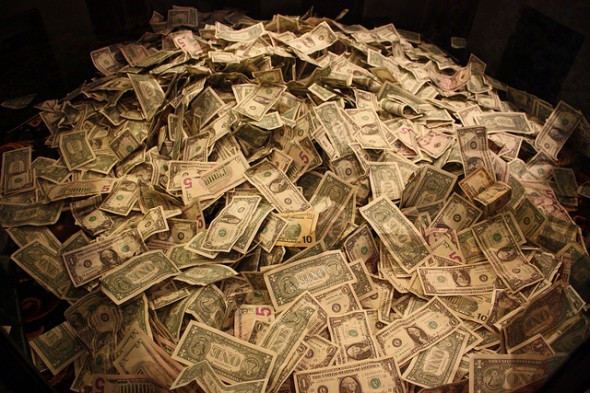Everyone dreams of being on the receiving end of an unexpected wad of cash but landing a financial windfall can quickly become a nightmare. Without some careful thought and planning, you could end up squandering the money before you’ve had a chance to put it to good use. Whether you’ve come into an inheritance, gotten a hefty bonus at work or hit it big playing the lottery, we’ve got some tips to help you make the most of your new-found wealth.
Find out now: How does my 401(k) work?
Initiate a Spending Freeze
If you’re like most people, the first thing you’re going to want to do after you cash your windfall check is go on a shopping spree. That’s actually the number one mistake you should avoid. Instead of buying a new car or going on a luxury vacation, do the sensible but boring thing and park the money. Stash it someplace safe, like a savings account, and give yourself some time to think about what you really want to accomplish.
Take a few weeks or even a few months to consider what your short- and long-term financial goals are. For example, you may want to pay for your child’s college education but you’re carrying tens of thousands of dollars in high-interest debt. You need to have a clear idea of what your financial priorities and how far the windfall will go towards helping you reach your goals.
Bulk Up Your Emergency Fund
If you don’t have any savings at all, a windfall is a perfect opportunity to beef up your emergency fund. Longfellow once said that into every life a little rain must fall. You want to make sure you have a sizable financial umbrella in place when the monsoon hits. Using a windfall to grow your emergency fund is an easy way to give yourself a little insurance against the unexpected.
Financial experts vary with regard to how much of an emergency fund you need. Some argue that three months’ worth of expenses is enough while others advocate six to eight months of savings. Ultimately, the size of your emergency fund depends on several factors, including your monthly expenses, income, your overall job stability and family size. When you’re shopping around for a place to stash your cash, look for a savings account that offers the highest interest rate possible and charges the fewest fees.
Dump High-Interest Debt
Some debts are better than others but if you’re mired in credit card bills, using your windfall to pay them off may be your best bet. If you’re paying a lot of money in interest each month to the credit card company, it can easily outweigh the return you’d get by putting all the new money in a regular savings account.
If your windfall isn’t large enough to pay off all your debts and still save, consider just paying off the ones that have the highest interest rate and setting aside some of the money in your emergency fund. If you use the windfall to pay off all your debts but have no savings, you could end up right back in debt if you have to borrow money to cover an unexpected expense.
Plan for the Future
If you’ve been procrastinating about saving for retirement, then a windfall is the perfect opportunity to start building your nest egg. A traditional or Roth IRA is an excellent way to supplement your employer’s retirement plan or build up your savings if your job doesn’t offer a 401(k) or similar plan.
Related Article: 5 Ways You Could Be Sabotaging Your Retirement
If you’re already on track with your retirement savings, you can use a windfall to safeguard your financial future in other ways. For example, you could pay off your mortgage, try your hand at investing or start a business. Just make sure that you weigh any potential pros and cons before making any significant money moves.
Give Wisely
Once you’ve gotten your financial ducks in a row, you may feel an urge to share a little of your good fortune with others. Before you start handing out financial gifts, think carefully about who you want to give the money to and how it will be used. You also need to think about any potential financial consequences. For example, if you want to give your kids money to buy a house or pay for college, you need to be aware of the tax implications.
If you want to support a charity, take some time to research organizations to make sure they’re a good fit for your beliefs. It’s also a good idea to make sure they’re legit before sending them a check. The IRS offers a free online tool that lets you check tax information for qualifying charities. If you do make a large charitable donation, don’t forget to get a receipt for tax purposes.
The key to making a windfall last is to take it slow and carefully consider all your options. Once you’ve got a plan, you can start putting your money to work for you, instead of the other way around.
Photo Credit: aresauburn™
